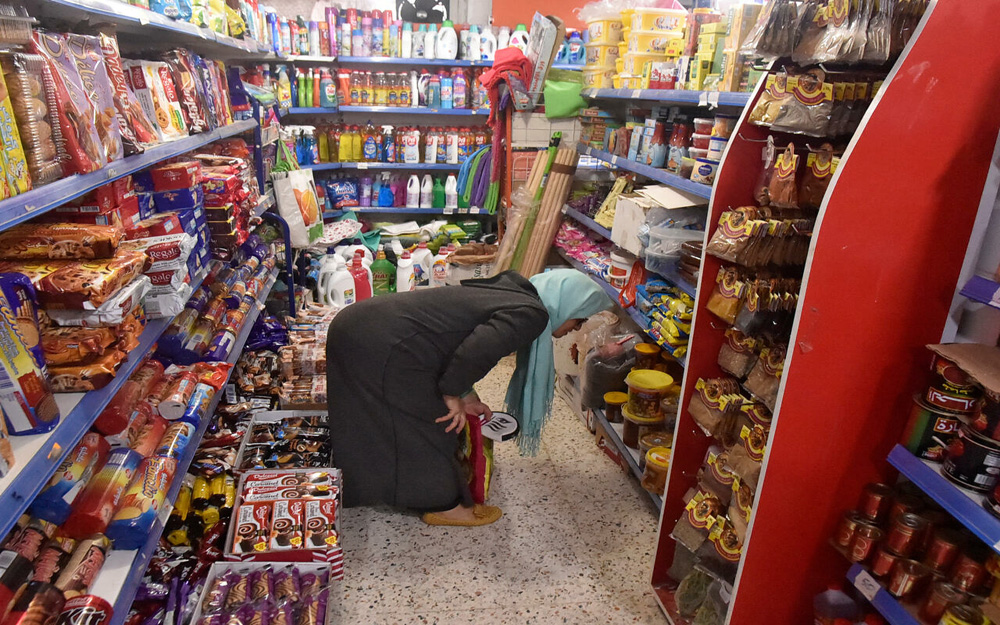
ALGIERS, Nov 24, 2021 (BSS/AFP) - Algeria plans to scrap its generous state
subsidies on basic goods that have long helped maintain social peace but
strained state budgets as energy revenues have fallen.
Many economists support the plan as a necessary evil, as long as the
neediest are protected, but some poor families are fearful about the impact.
The North African country, heavily dependent on oil and gas exports, has
for decades subsidised everything from bread and milk to fuel and
electricity, at the cost of billions of dollars a year.
But income from energy exports has fallen for years, especially during the
downturn driven by the Covid-19 pandemic, heightening the strain on public
finances in the country of 43 million.
The International Monetary Fund (IMF), which advocates subsidy reform, last
month urged Algiers to "recalibrate" its policies.
Lawmakers voted last week to wind back the subsidy system that has helped
share the energy wealth with all households regardless of income, leaving
some people worried about how they will get by.
"It's a disaster," Hafidha, a mother-of-two with a monthly pension of
50,000 dinars ($360) said at an Algiers market.
"Already with the current prices we have a hard time making ends meet. The
price of sugar, oil, water and fuel will definitely go up."
Public fears were stoked when fruit and vegetable prices recently
skyrocketed.
The price of potatoes more than tripled to 140 dinars ($1) a kilogram,
although authorities blamed this on market speculators they said they had
since disbanded.
- 'Recalibration' -
During Algeria's transition to a market economy in the 1990s, subsidies
replaced the fixed prices of a planned economy that had been in place since
independence from France in 1962.
Algeria's subsidy system has been financed by energy exports that account
for about 95 percent of foreign revenues and 60 percent of its budget.
But with a recent decline in energy prices, "the state no longer has the
means for such a generous social policy" economist Omar Berkouk told AFP.
"All the World Bank and International Monetary Fund experts, as well as
economists, have pointed to the need to reduce (subsidies) by better
targeting the recipients," he added.
Critics of state subsidies say they are costly, create harmful market
distortions and are inefficient because they help rich households more than
poor ones.
In early October, the IMF said the pandemic and a fall in oil prices and
output had "seriously impacted the economy last year" when Algeria's real GDP
contracted by 4.9 percent.
Although a recovery is underway, it recommended "a broad-based fiscal
adjustment" with measures to protect the most vulnerable should start in
2022.
Algeria's state budget for next year sets aside the equivalent of $17
billion for social transfers, including compensation measures, as well as
assistance for education, health, housing and support for large families.
This is far below the $30-40 billion a year in the state budgets between
2012 and 2017.
- Identifying the needy -
Previous governments considered introducing more targeted subsidies in
2015, and again in 2017 when the current President Abdelmadjid Tebboune was
prime minister.
"It was ex-president Abdelaziz Bouteflika who prevented any such action,
with an eye to running for a fifth term," Berkouk said about the late veteran
leader who was ousted amid mass protests in 2019.
Zoheir Rouis of the Jil Jadid (New Generation) party said the lifting of
subsidies should not be "an end in itself but another way to optimise public
spending".
Social and labour issues expert Nouredine Bouderba however slammed the move
as "dangerous for national cohesion" in comments to the Reporters news
outlet, arguing it comes as the purchasing power of many Algerians is already
"under violent assault".
Prime Minister Aimene Benabderrahmane, who is also finance minister,
assured parliament that "the government has no intention of cutting state
aid", promising instead "a new philosophy that targets families in need with
direct aid".
But Berkouk voiced concern that "it's difficult to identify the people in
most need" given the large informal economy and absence of income and asset
declarations.
"The poor are visible in the streets, but there is no statistical tool to
identify them."